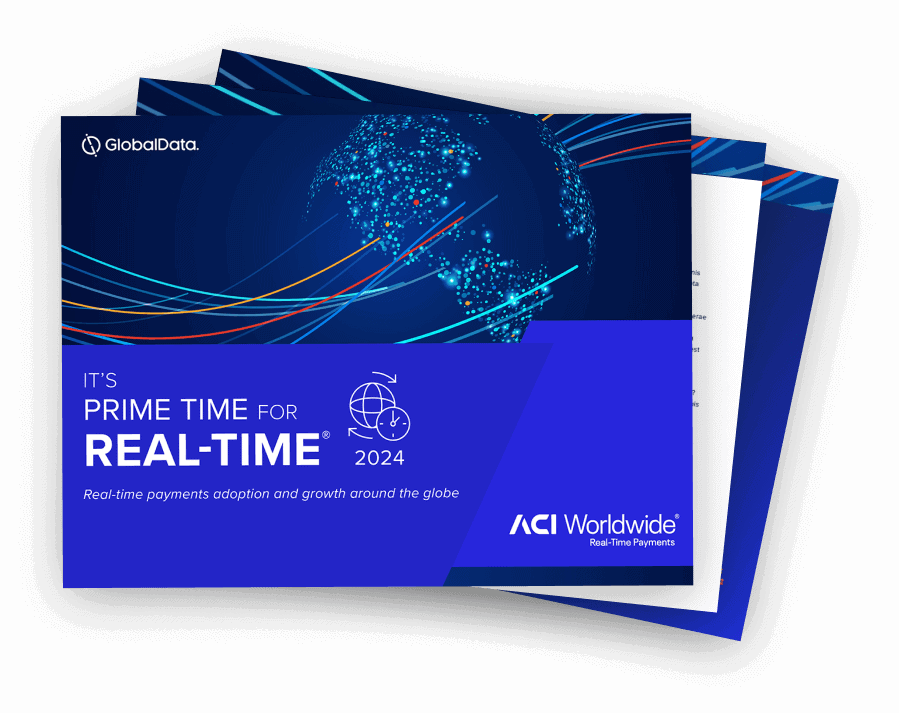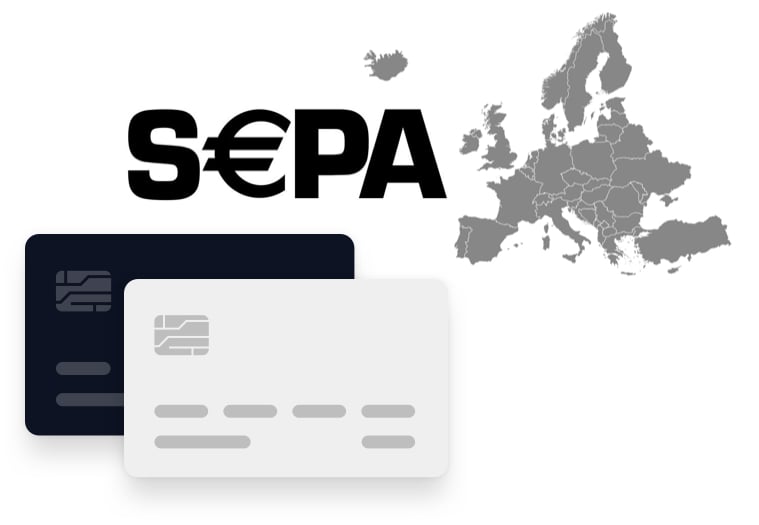Industry Guide
The complete guide to SEPA instant payments
SEPA instant payments create a fast, secure way for businesses and consumers throughout Europe to make cross-border transactions
On This Page
What is the Single Euro Payments Area (SEPA)?
The Single Euro Payments Area (SEPA) is an initiative launched by the European banking and payments industry to synchronize and simplify electronic payments within the European Union (EU), as well as a number of non-EU countries.
SEPA aims to:
- Create a single, integrated market for euro-denominated payments
- Eliminate barriers on cross-border transactions, making them as seamless as domestic transactions
- Level the playing field across the eurozone for all participating countries
SEPA was first introduced for credit transfers in 2008, was fully implemented in the euro area in 2014 and was fully implemented for non-euro countries in 2016. In 2017, SEPA was extended to cover card payments, leading to the introduction of SEPA for Cards and SEPA Instant Credit Transfer.
Throughout its history, SEPA has aimed to simplify and standardize electronic payments, making it easier for businesses and individuals to conduct transactions across borders and within their own countries. It has also contributed to the integration of the European payments market and the adoption of common payment standards.
SEPA continues to evolve, with ongoing efforts to enhance efficiency, security and cross-border payment capabilities within the eurozone and beyond.

What are the different types of SEPA transfers?
SEPA consists of four transfer types, based on different processing schemes:
- SEPA Credit Transfer (SCT)
- SEPA Instant Credit Transfer (SCT Inst)
- SEPA Direct Debit Core
- SEPA Direct Debit Business-to-Business

What is a SEPA Credit Transfer (SCT)?
SEPA Credit Transfer, more commonly abbreviated as SCT, is a payment processing scheme used for making one-time, euro-denominated fund transfers between banks and payment service providers (PSPs) in the SEPA area. SCT is based on straight-through processing and is able to support both single and bulk payments. This type of transfer is often used to make one-time payments between accounts, such as bill payments, salary transfers or general fund transfers.
What is a SEPA Instant Credit Transfer (SCT Inst)?
An enhanced version of SCT, SEPA Instant Credit Transfer (SCT Inst) supports money transfers of up to €100,000 between participating banks or PSPs in the SEPA area in real or near-real time. SCT Inst not only offers faster settlement — the vast majority of SCT Inst transactions are processed in a matter of seconds — but they’re also available 24/7/365.
What is SEPA Direct Debit Core (SDD Core)?
SEPA Direct Debit Core (SDD Core) is a standardized payment method that enables authorized creditors, such as businesses or service providers, to collect payments directly from debtors’ bank accounts — in this case, consumers. Consumers must provide their explicit consent by signing a mandate to participate in SDD Core. SDD Core is often used to collect recurring payments, such as utility bills, subscriptions or loan repayments.

What is SEPA Direct Debit Business-to-Business (SDD B2B)?
SEPA Direct Debit Business-to-Business (SDD B2B) is a variation of SDD Core designed specifically for B2B transactions. As with SDD Core, businesses must sign a mandate giving their full consent to participate in SDD B2B. SDD B2B is often used for recurring payments, such as invoice payments, subscription fees, membership dues and supplier payments.
How does SEPA work?
SEPA introduces common rules and payment instruments for euro-denominated electronic payments, allowing for greater standardization and ensuring consistent processing across participating countries.
Every bank account in the SEPA area is assigned an International Bank Account Number (IBAN) and a Bank Identifier Code (BIC) to uniquely identify bank accounts and financial institutions.
Each type of SEPA transfer follows largely the same process for initiation, processing, reconciliation and settlement, with the exception of SCT Inst payments, which settle faster than other SEPA transfers. SCT Inst payments are also the only type of SEPA transfer that is irrevocable and, therefore, final.
What is the European Payments Council’s involvement in SEPA?
The European Payments Council (EPC) is an international not-for-profit organization that works with European banks and payment service providers to develop and maintain SEPA schemes and frameworks. The EPC works closely with regulatory authorities and other stakeholders throughout the payments chain to advocate for the adoption and implementation of SEPA and to facilitate its integration with national payment systems.
Which countries are part of SEPA?
According to the EPC, the following countries currently participate in SEPA:
EU/European Economic Area (EEA) Countries
Austria
Belgium
Bulgaria
Croatia
Cyprus
Czech Republic
Denmark
Estonia
Finland
France
Germany
Greece
Hungary
Iceland
Ireland
Italy
Latvia
Liechtenstein
Lithuania
Luxembourg
Malta
Netherlands
Norway
Poland
Portugal
Romania
Slovakia
Slovenia
Spain
Sweden
Non-EEA Countries
Andorra
Monaco
San Marino
Switzerland
United Kingdom
Vatican City State
How long do SEPA Instant Credit Transfers take to process?
According to data from the EPC, over 99% of SCT Inst transactions are completed within less than five seconds.
Speaking more broadly, most SEPA payments — SCT Inst or otherwise — are settled within a day of being initiated.
What are the benefits to using SEPA instant payments?
With demand for real-time payments at an all-time high — we anticipate that there will be more than 511.7 billion real-time transactions globally by 2027, at a compound annual growth rate of 21.3% from 2022 to 2027 — it’s easy to see why there’s so much interest in SCT Inst.
But that’s not the only factor behind SCT Inst adoption — other benefits businesses can achieve from embracing SEPA instant payments include:
- Streamlined payments experience: The fast and always-available nature of SCT Inst payments simplifies financial transactions, making it suitable for a wide variety of use cases, including emergency payments, eCommerce purchases and last-minute bill settlements. SCT Inst can also be used in conjunction with other payment solutions, such as QR codes and SEPA Request-to-Pay, offering users access to a wider range of payment options.
- Control over costs: SCT Inst payments are irrevocable, which means recipients can rely on funds being delivered as agreed upon. This feature reduces the risk of payment disputes, chargebacks and fraudulent activity, as well as offers businesses greater financial stability and predictability.

- Improved resource allocation: SCT Inst automates every aspect of payments processing, including reconciliation, which saves businesses valuable time and resources. And by expediting processing and settlement, SCT Inst offers immediate access to funds, enabling businesses to improve liquidity and better manage their cash flow.
- Regulatory compliance: SCT Inst transactions adhere to SEPA’s strict standards, which are designed in accordance with various European regulations and rulebooks, including the revised Payment Services Directive, Regulation (EU) No. 260/2012 and the European Central Bank’s legal framework.
- Greater interoperability: SCT Inst payments are based on the ISO 20022 messaging standard, which facilitates the exchange of structured data between financial institutions. As a result, SCT Inst — and other SEPA transfers — not only supports seamless cross-border transactions but also ensures interoperability and data consistency in payments. One-Leg Out SCT Inst (OCT Inst), in particular, is dedicated to international transactions standardized by the EPC.

What else should businesses know about SEPA instant payments?
In October 2022, the European Commission put forward a legislative proposal to make instant payments available to all citizens and businesses throughout the EU and the EEA, with the stated goal of ensuring that “instant payments in euro are affordable, secure, and processed without hindrance across the EU.”
The proposal’s key provisions are as follows:
The European Council agreed its position on this proposal in May 2023, and the proposal is set to begin negotiations with the European Parliament before a final version of the regulation is released.

How does ACI Worldwide support the Instant Payments Regulation (IPR) Mandate?
ACI Worldwide provides payment technology that supports financial institutions and payment service providers embarking on their real-time payment journey. ACI is IPR experienced and we already have a compliant solution in Europe today.
ACI shares how payments modernization, better fraud prevention, and improved security of payments in Europe can improve efficiency and remove friction for all users and suppliers in our latest Policy Guidance, Advancing European society through payments. We welcome an open and constructive dialogue with industry and regulatory stakeholders in Europe to discuss our recommendations about how the European Commission can, in this new legislative term, advance the payments ecosystem and achieve payments that are affordable, secure, and processed without hindrance across the SEPA countries.
We offer multiple deployment options to instant payment rails: on-premises, single-tenant, multi-tenant managed service, and cloud options to meet your unique business needs. Contact our team today to learn more about how ACI supports instant payments across Europe.
